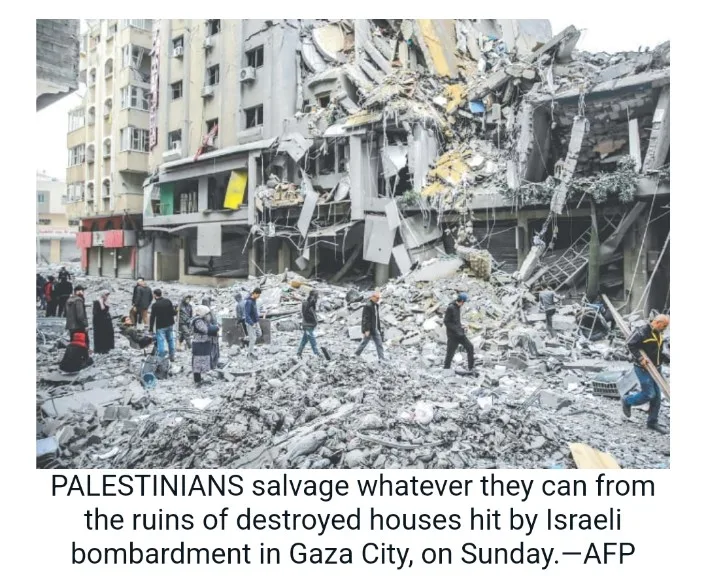GENEVA: The Gaza crisis is a “powder keg” with the potential to spark broader conflict in the Middle East, UN human rights chief Volker Turk said on Monday.
Turk said it was imperative to do everything possible to avoid a wider conflagration.
“The war in Gaza has already generated dangerous spillover in neighbouring countries,” he said in his global update to the United Nations Human Rights Council.
“I am deeply concerned that in this powder keg, any spark could lead to a much broader conflagration. This would have implications for every country in the Middle East and many beyond it.”
US vice president uses unusually strong language to ask Israel to ensure aid reaches Gaza
He said that overlapping emergencies made the “spectre of spillover very real”.
“The military escalation in southern Lebanon between Israel, Hezbollah and other armed groups is extremely worrying,” Turk said.
The UN high commissioner for human rights said almost 200 people had been killed in Lebanon and some 90,000 internally displaced.
There was also extensive damage to health facilities, schools and vital infrastructure.
“Incidents in which civilians, including children, paramedics and journalists, have been killed in attacks must be fully investigated,” said Turk.
“It is imperative to do everything possible to avoid a wider conflagration.”
Harris slams Israel
US Vice President Kamala Harris has called for acceptance of a proposed six-week ceasefire deal, while criticising Israel over insufficient aid deliveries into Gaza.
In unusually strong language, Harris called upon Israel to take steps to increase aid into Gaza.
“Given the immense scale of suffering in Gaza, there must be an immediate ceasefire for at least the next six weeks, which is what is currently on the table,” Harris said during a speech in Selma, Alabama, on Sunday.
“The Israeli government must do more to significantly increase the flow of aid. No excuses,” Harris said.
She added that Israel “must open new border crossings” and “must not impose any unnecessary restrictions on the delivery of aid”.
Her comments were the strongest to date by a US administration official on Israel, as President Joe Biden comes under pressure over his support for Israel and the civilian death toll in Gaza soars.
A senior US official said on Saturday that Israel had broadly accepted the deal, which would see a six-week cessation of hostilities if Hamas agrees to release “the most vulnerable prisoners” it holds.
The Israeli army says 130 prisoners remain in Gaza, of whom 31 are believed to be dead.
The US vice president called upon Hamas to accept the truce proposal. “Hamas claims it wants a ceasefire. Well, there is a deal on the table. And as we have said, Hamas needs to agree to that deal.”
Kamala Harris deplored the Israeli bombing last week on Palestinians around a convoy of aid trucks.
“Too many innocent Palestinians have been killed,” Harris said.
“People simply trying to secure food for their families after weeks of nearly no aid reaching northern Gaza… were met with gunfire and chaos,” said Harris, adding: “Our hearts break for the victims of that horrific tragedy.”
Harris delivered her remarks at the foot of Edmund Pettus Bridge, where a march by hundreds of peaceful activists was violently suppressed by police on March 7, 1965.
She is due to meet Benny Gantz, a centrist member of Israel’s emergency cabinet, in Washington this week.
“The vice president’s meeting is part of our continued efforts to engage with a wide range of Israeli officials on the war in Gaza and planning for the day after,” a White House official said on Sunday.
The former Israeli military chief, a long-time rival of Prime Minister Netanyahu, will also meet US Secretary of State Antony Blinken and National Security Adviser Jake Sullivan.
Blinken on aid
US Secretary of State Antony Blinken appealed to both sides to ensure that aid reaches Gaza Strip’s beleaguered population soon.
“It is imperative that we expand the flow of aid into Gaza to alleviate the dire humanitarian situation,” Blinken wrote on X.
He added: “People urgently need more food, water, and other assistance. That’s why the US is working to get more aid in through every available channel, including air drops.” These started on Saturday.
By AFP






